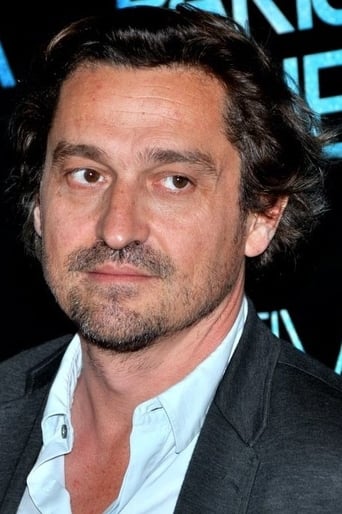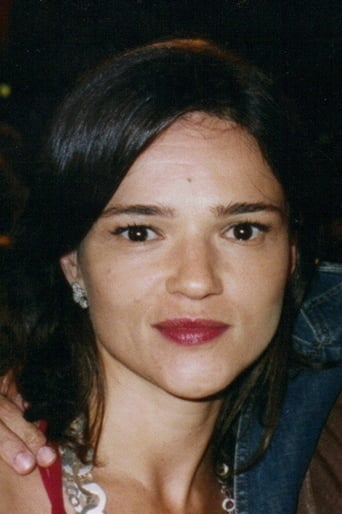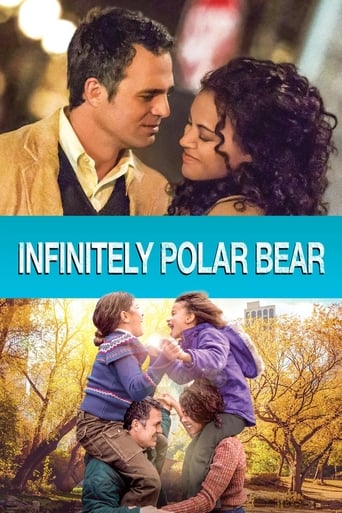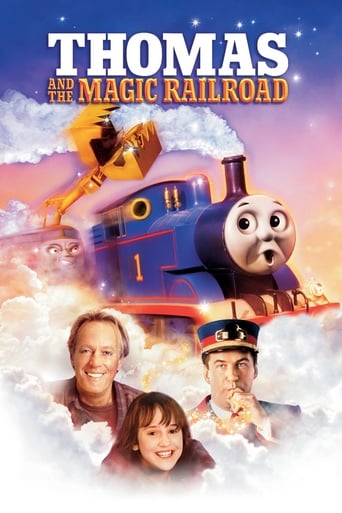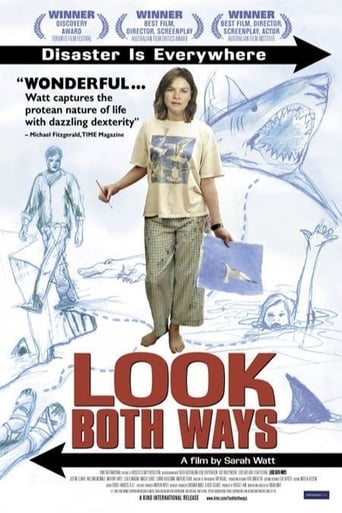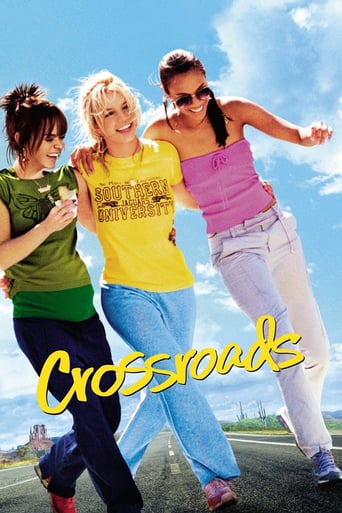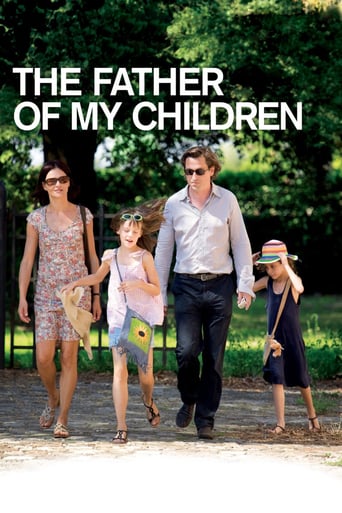
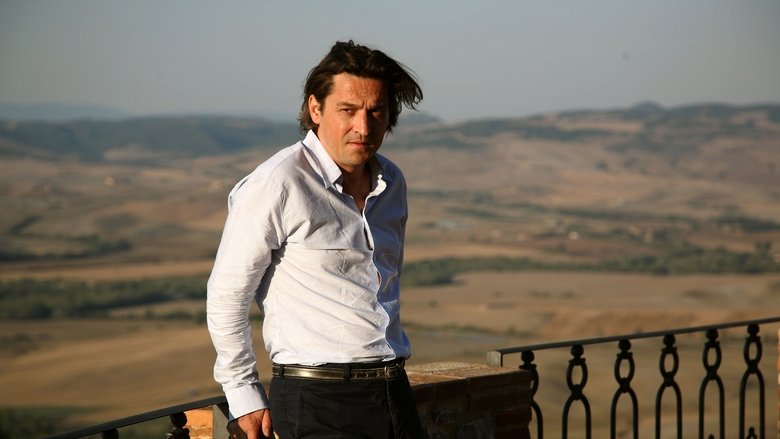
Father of My Children (2010)
Grégoire Canvel has everything a man could want. A wife he loves, three delightful children and a stimulating job. He's a film producer. Discovering talented filmmakers and developing films that fit his conception of the cinema-free and true to life-is precisely his reason for living. Yet his prestigious production company, Moon Films, is on its last legs. Too many productions, too many risks, too many debts. Storm clouds are gathering. But Grégoire ploughs on at all costs. Where will his blind obstinacy lead him?
Watch Trailer
Cast


Similar titles
Reviews
Loosely based on the real life suicide of the late film producer Humbert Balsan, renowned for his backing of Arabian and women cinema, dissects events leading up to the ill-fated death and then presents the personal fallout left in its wake. Appropriately filmed by a woman, director Mia Hansen-Løve stresses the differences by changing the name of the producer to Grégoire Canvel (Louis-Do de Lencquesaing), in part to avoid confusion about the dramatisation, in part out of pure respect.The story places a visible distinction between the before and after, where the key focus is placed on how his wife Sylvia (Chiara Caselli) and three daughters Clemence (Alice de Lencquesaing), Billie (Manelle Driss) and Valentine (Alice Gautier) cope in the aftermath of the suicide caused by financial distress.Fittingly cinephile "Father of my Children" is a slow-paced family drama with a lingering focus on emotions. Life however, unlike in most movies fret with happy endings, just goes on. Attempts to tie up the past are only partially successful, when Sylvia embarks on a mission to finish her husband's legacy by completing unfinished productions only to face harsh realities, that certain things will be forcibly left buried with Grégoire and liquidation is inevitable. A Hollywood closure is unachievable, simply as unrealistic as rescuing a sinking ship. Even family matters are left open-ended, as the daughters struggle to understand how their father could have compulsively done away with himself to ultimately disregard the family that supported him throughout and where a great affection between members is evident. In the end each of them cope on their own, more owed to time passing by, than some profound realisation.Essentially a good movie made in true French style, albeit a low-key affair, which lingers emotionally, but doesn't do much in the way of awakening deeper reaction, despite all-round good performances. The run-length fizzles through gaining some dramatical foothold, but maybe not sufficient given the grave subject matter. Bleak engagement bereft of pull substantially drives down the quality of the experience, as the realism of grieving seems to ask for a more standardised movie language with a distinct culmination.
This film gave me the kind of experience I hope for when watching French movies: A character driven, intimate story, which so involved me that I feel as if I'd been away on a trip to France. The performances were authentic & lean. The scenery, both interior shots of apartments & buildings, as well as exterior shots of street life, made me feel as if I was in Paris. I was engrossed as to how the characters reacted to the heavy subject matter & how the story line progressed. The film has great depth without feeling heavy.A reviewer here on IMDb commented about how they didn't like the scenes which were not driving the story line, but for me, that's what I love about (some) French Cinema: a character walks from point A to point B or a character orders coffee while awaiting an important appointment. These connecting scenes are the stuff of real life & enable the viewer to identify with the character. Everyone experiences those mundane moments & knows what it feels like.Except for the main character Gregoire, I did not judge the reactions of the other characters: I simply observed their reactions to the serious events that befell them.The final scene was darkly humorous: Doris Day sings "Que Sera, Sera" as the characters flee Paris, leaving behind the life they had loved.
(Spoilers) This meditation on a suicide left me somewhat unsatisfied. It is the story of Grégoire Canvel, a successful French movie producer, and his family. The first part of the movie introduces us to the Canvel family: Grégoire, his wife, and three attractive young daughters. There are scenes that illustrate the great affection that exists among all members of this family, like Grégoire playfully searching for his youngest daughter who is hiding under the covers in her bed.We are led to believe that Grégoire is a typical, harried businessman who spends most of his life on his cell phone. However, as the movie progresses it is seen that Grégoire's company is in some serious financial trouble and his business is on the verge of bankruptcy. Hints are dropped that Grégoire himself may be in some deep emotional waters. All of this is well and good and I waited to find out the resolution to this unfortunate situation, but I was not prepared for Grégoire's abrupt suicide about half way through the movie. Indeed his suicide is mystifying since Grégoire's family life is so positive. I wanted more details on the motivation for the suicide--could it have simply been the financial problems as implied? That seems too simple an explanation. Grégoire is seen burning some documents before ending his life; what were those? Why was the audience denied knowing this, since that could have helped in understanding the suicide. Grégoire mentioned that as a last resort he could tap into his wife's monies. He never acted on that. Why was that? Was it even a possibility?The second half of the movie details the family's reaction to Grégoire's fatal act. This part of the movie plays out in a believably realistic way. Grégoire's wife Sylvia tries to finish up the projects that her husband had underway at the time of his death. If she had substantial financial reserves, she did not use those to accomplish her goals. Each of the three girls copes in her own way--life goes on.In the end I felt like a voyeur dropping on in this family's tragedy and I had to question the value of the movie. It was not a warning to pay closer attention to the emotional state of others, since I think that there was no way that Sylvia could have guessed the gravity of Grégoire's mental state. Maybe an admonition that people should be more forthcoming in communicating what they are thinking? On average in France there are three male suicides for every female suicide. Does this movie help in understanding that statistic?The movie is well filmed and the actors are in good form. As a bonus there is a small travelogue of Parisian scenes as Grégoire drives around Paris. But I was left wanting more.
In response to previous reviews, commenting on this movie's failure to live up to its so- called "roller-coaster of emotions" hype, I agree. Happily. This movie is not an edge of your seat, thrill at every corner, emotion jerker- and that's what makes it superb. Hansen- Løve binds this movie to a sense of realism which i find translates perfectly to its audience, and relates to its audience. The movie illustrates Grégoire's progression towards suicide, and the life for the family he leaves behind, in a non- appeasing, human way. Grégoire's story may not provide the audience with explanations, excuses or a nice dramatic lead up to his death. Scene by scene, the audience is given mixed messages from Grégoire, leading us to feel unprepared for his sudden death. But that is suicide, in its realest form. And Hansen- Løve has successfully translated this feeling from the Canvel family to the audience. In justification of the so called "pointless" scenes, a scene sampling the relationship between the elder daughter and the writer boy who met with Grégoire, or another sampling the elder daughters pursuance of her half brother, is completely adequate. The daughter is rebuilding her life after Grégoire's death, which cannot be shown to us in a detailed, flowing, coherent way- because that is not the way she is living it. The broken, inconsistent scenes of the elder daughter's, the younger daughters' and the wife's lives, are shown to the audience in the same way they are lived by the characters.The scenes prior to Grégoire's death, however, construct a solid image of the emotional bond and unity of the 5 members of the Canvel family- scenes such as a giggling Valentine being discovered by Grégoire, hiding in his bed, or Billie floating alone in the pool of water, being watched over by her mother. I think in order to profit from this movie, the audience's expectations should be shifted from a "rollercoaster ride of emotions" kind of movie- complete with drama, coherence, and a relevant, easy to follow plot- to that of a sincere expression of life as it is, and how it continues- captured on film. In this respect, it is superb.


